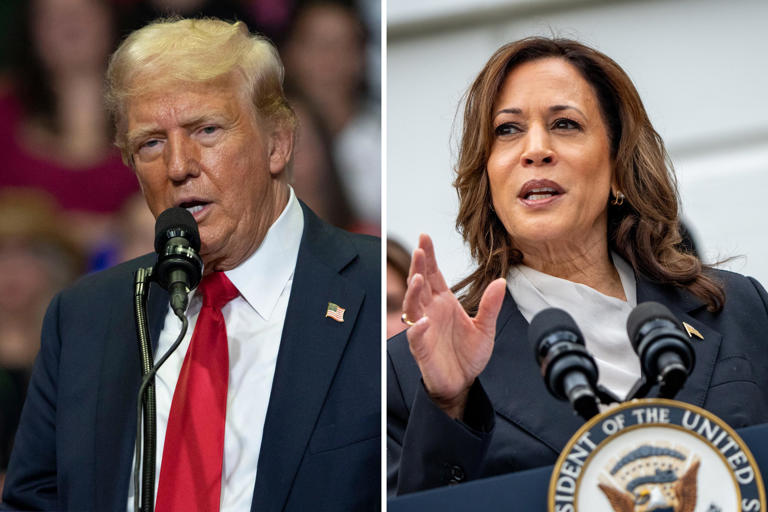One week after President Joe Biden’s unexpected withdrawal from the 2024 presidential race and his endorsement of Vice President Kamala Harris, polling averages reveal a competitive race between Harris and former President Donald Trump.
According to aggregate polls from major sources like The New York Times, The Hill, and RealClearPolitics, Harris is trailing Trump by a narrower margin than Biden did prior to his exit. RealClearPolitics shows Trump leading by 1.7 percentage points, with Trump at 47.9% and Harris at 46.2%.
The New York Times’ aggregate poll puts Trump ahead by 2 percentage points, at 48% to Harris’ 46%. The Hill’s aggregation shows Trump garnering 48% of the vote, with Harris trailing by 2.1 percentage points at 45.9%.
The Morning Consult survey, conducted between July 22 and 23 with 11,297 registered voters, shows Harris leading Trump 46% to 45%, marking the highest level of support for a Democrat since tracking began in 2022. This poll has a margin of error of ±1 percentage point.
Similarly, a Reuters/Ipsos poll conducted between July 22 and 23, surveying 1,241 adults (1,018 registered voters), reveals Harris slightly ahead of Trump at 44% to 42%, with a margin of error of ±3%. The HarrisX/Forbes poll, from July 22 to 25, with 3,013 registered voters, indicates Trump with 47% support and Harris with 45%, with a margin of error of ±1.8 percentage points.
In contrast, the Rasmussen Reports poll, conducted from July 22 to 24 with 1,074 likely voters, shows Trump with a more substantial lead, holding 50% support compared to Harris’ 43%, with 4% supporting another candidate and 3% undecided. This poll has a margin of error of ±3%.
Biden’s exit and subsequent endorsement of Harris triggered a surge in support, evidenced by over $100 million in donations and the enlistment of 170,000 campaign volunteers. This newfound momentum is crucial as Harris attempts to close the gap with Trump in the coming 100 days before the November 5 election.
While national polls provide a snapshot of voter preferences, the presidential election hinges on the Electoral College. Candidates need 270 electoral votes to secure the presidency, emphasizing the importance of state-specific strategies and victories.



